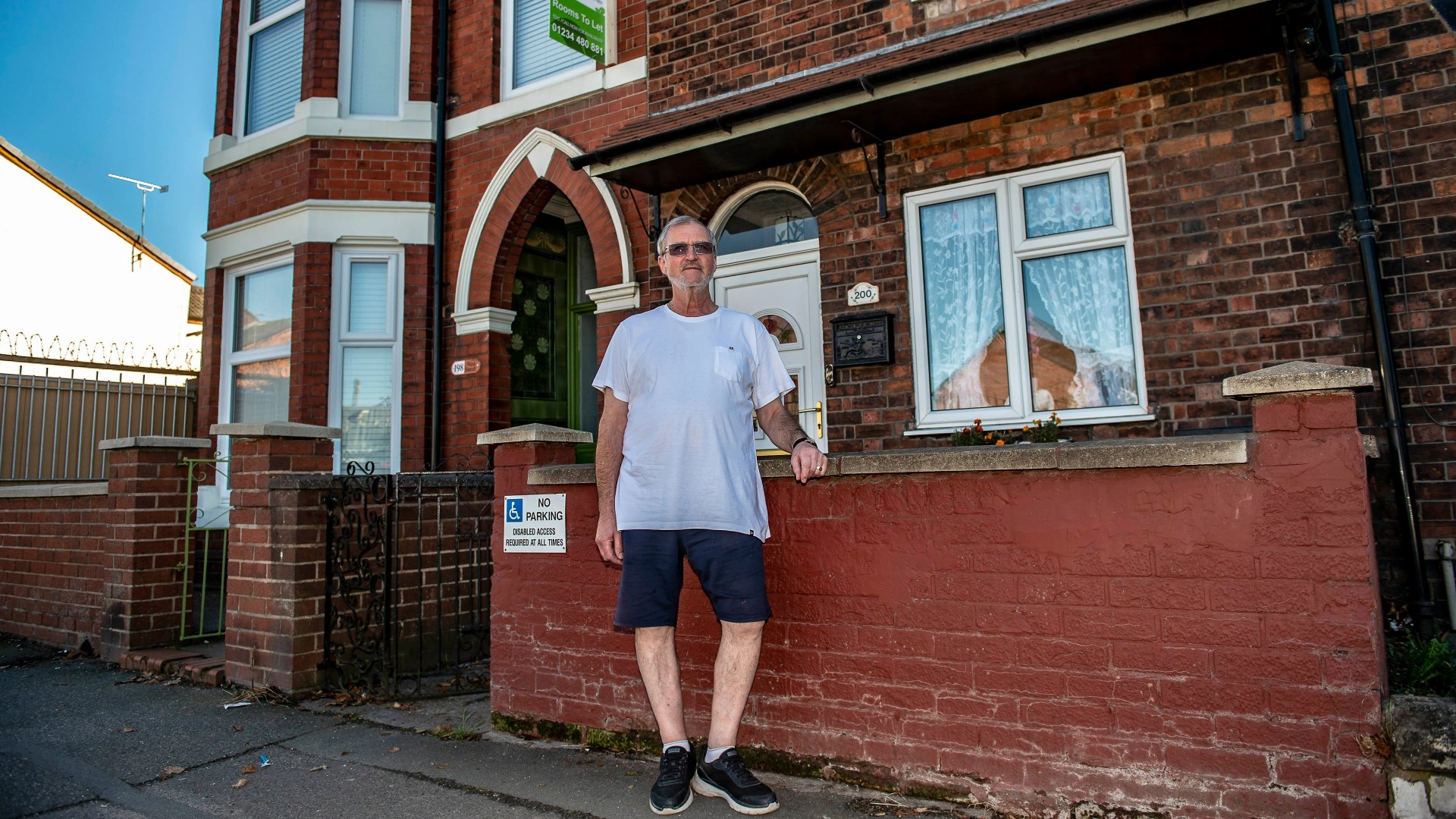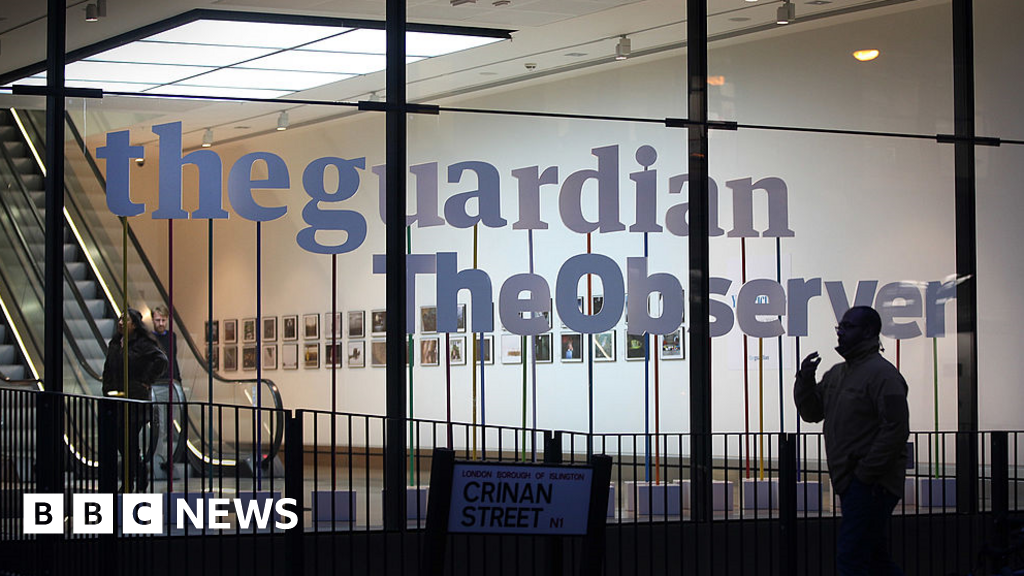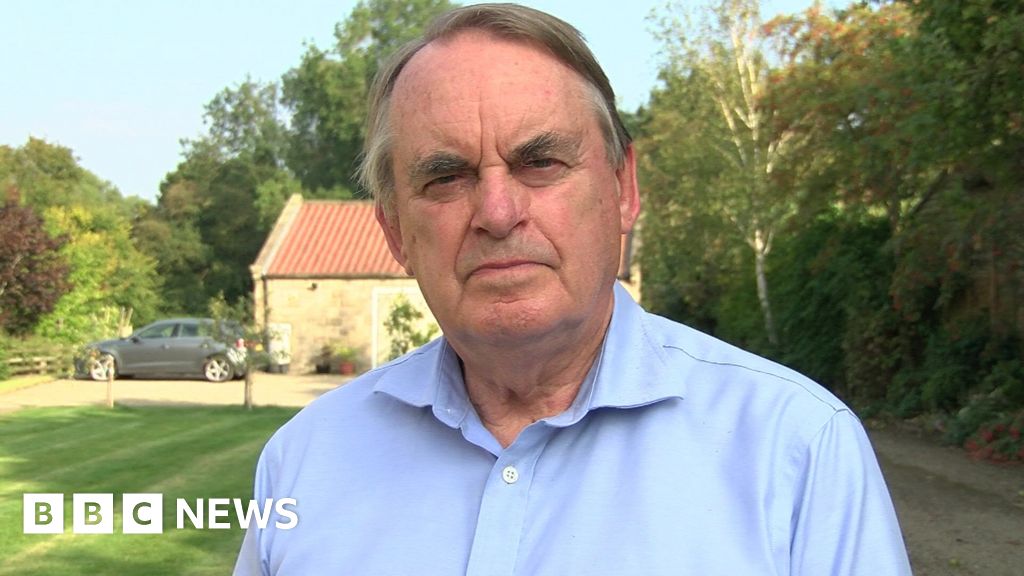Five years since its last rescue and only months before the start of work on a Royal Navy contract that was supposed to secure its future, Harland & Wolff, the builder of the Titanic, is on the rocks again.
An ill-focused strategy and galloping costs pushed the insolvent parent company into administration this week, putting 1,200 jobs at four yards and one of the most illustrious names in British shipbuilding on the line.
The clock is now ticking in the race to find a buyer — or buyers — for the 163-year-old Belfast operation and yards in England and Scotland in an effort to keep vital defence contracting in the UK.
Trevor Taylor, director of the defence, industries and society programme at the think-tank Royal United Services Institute, said the choice of H&W for the Royal Navy contract “was always a giant risk given the minimal labour force and limited manufacturing infrastructure that they had in place”.
An “effective rescue” of the four yards, he added, was needed to “maintain any credibility for the National Shipbuilding Strategy”.
Despite the cash flow problems at the parent company, H&W had been expanding the historic Belfast shipyard and its apprentice scheme in readiness for a traditional steel-cutting ceremony early next year to mark the start of work on three Royal Navy ships — the first vessels to roll down its slipway in over two decades.
The £1.6bn Fleet Solid Support (FSS) contract, secured in 2022 by a consortium led by Spain’s Navantia — and involving final construction and assembly at H&W’s Belfast yard — had appeared a lifeline for the ailing shipbuilder.
Belfast, dominated by H&W’s famous yellow cranes, is receiving most of the £77mn of FSS investment and is expanding its main fabrication hall.

A global giant in its early-20th century heyday and once Northern Ireland’s largest employer, the flagship Belfast yard finally looked set to emerge from decades of decline that had been exacerbated by stiff competition from cheaper Asian competitors and other, better-capitalised UK defence contractors.
But analysts say the firm, which was rescued from administration in 2019 by energy infrastructure group InfraStrata, lost its way and ran out of cash.
“The costs built up at a much quicker rate than the revenue came in,” said interim executive chair Russell Downs, an experienced restructuring expert.
Unaudited results, published in July, showed revenues more than tripled to £87mn in 2023 from the year before, while operating losses more than halved to £24.7mn. But interest costs rose 50 per cent to £18.4mn.
H&W bought three more yards after its rescue by the then CEO John Wood — Appledore in Devon in south-west England plus Scottish facilities at Methil in Fife and Arnish in the Hebrides — and pivoted to a range of energy, renewables and cruise liner refurbishment operations, as well as non-core activities such as a Scilly Isles ferry.
A probe is now under way into allegations of “misallocation” of £25mn and other spending for “little or no corporate benefit”, underlining H&W’s weak financial oversight. No one has been named or wrongdoing established.
Harland & Wolf is one more headache for the UK’s new Labour government as it battles industrial crises ranging from British Steel in Scunthorpe and Tata Steel in Wales to the Grangemouth refinery in Scotland and Thames Water in south-east England.
Its refusal to grant a key £200mn loan guarantee in July, which could have enabled H&W to unlock cheaper funding, left the London-based parent company scrambling for finance. US lender, Riverstone, which had already lent H&W $115mn, granted an emergency $25mn loan in August. Most of this has already been spent, according to people briefed on the situation.

The shipbuilder was by then “insolvent — and not a little bit insolvent, but a lot insolvent”, Downs said. H&W’s failure to clinch the government facility sealed its fate. “It went wrong because [H&W] got turned down and they had no fallback,” he said.
Freddy Khalastchi, business recovery partner at consultancy Menzies, said H&W had been hobbled by cash flow problems since 2019 — possibly in part because of the Covid pandemic — and never turned a profit.
Downs announced this week he was appointing Teneo as administrator and hoped to sell the four yards together within weeks.
Only the Belfast yard, which employs some 600 and has two of the biggest dry docks in Europe, and Appledore are involved in the FSS contract.
“Clearly the purchaser’s main target will be the jewels in the crown [Belfast and Appledore] because of the income the FSS contract generates and also because of the future opportunities this could bring,” said Khalastchi.
Buying H&W might make the most sense for Navantia, analysts say — fuelling union fears that shipbuilding and jobs could be lost to Spain, leading to job losses in Northern Ireland, one of the poorest parts of the UK.
The consortium led by the Spanish state firm clinched the FSS contract two years ago after beating an all-UK bid that included defence contractors BAE Systems and Babcock International. All three declined to comment on their interest in buying all of H&W or just the Belfast yard.
Kate Forbes, Scotland’s deputy first minister, has noted the “economic opportunities” for the Methil and Arnish yards and a global defence contractor has expressed interest in acquiring the Scottish business, according to one person briefed on the situation, declining to identify the company.
H&W’s collapse is a blow to attempts by successive governments, most recently in 2022, to forge a national shipbuilding strategy that would deliver a steady pipeline of work to yards across the country.
But the Labour government has defended its decision on the loan guarantee, blaming its Conservative predecessors for dragging its feet.
“In some ways, we were lucky that the first big decision we were handed was such an obvious basket case,” said one Labour figure. “There were plenty of red flags around it and it was a clear-cut decision not to go ahead with the loan guarantee.”
Francis Tusa, analyst and editor of the Defence Analysis newsletter, said the shipbuilding strategy had several “disjoints” from the start. Aside from a lack of money, it proved difficult to foster competition while at the same time promising a viable domestic warship industry with work for all yards.

Despite the uncertainty, some workers in Belfast said the mood was “nothing like 2019” when the company previously filed for insolvency.
Apprentice Ethan Baxter, 18, who joined H&W in Belfast three weeks ago was also hopeful. “I have heard there will be new buyers. I’m not worried.”
But unions who occupied the Belfast site for nine weeks in 2019 before its £6mn rescue were concerned their hard-fought victory will have been in vain.
“I was involved in 2019 when we literally just refused to give up — and you know, we would do the same again,” said Susan Fitzgerald, Irish secretary of union Unite, which represents most of the workers in Belfast and Appledore.
“We want to hear that our members’ jobs and skills are safe for the next generation. We don’t want someone coming in squandering that opportunity.”
Navigating choppy waters

1861
Harland and Wolff is founded by Edward Harland and Gustav Wolff in Belfast
1912
The company’s most famous ship, Titanic, sinks on its maiden voyage from Southampton to New York
1975
H&W nationalised after decades of decline amid rising competition from Asia
1989
H&W returns to private ownership in a management buyout backed by Norwegian industrialist Fred Olsen
2003
Anvil Point, the last ship built in Belfast, is launched
2018
Norway’s Dolphin Drilling, formerly known as Fred Olsen Energy, puts H&W up for sale
aug 2019
H&W files for insolvency after Dolphin Drilling files for bankruptcy
Oct 2019
UK energy infrastructure group InfraStrata, led by John Wood, agrees to buy H&W for £6mn.
2023
H&W is part of consortium led by Spain’s Navantia that is awarded £1.6bn Royal Navy contract to build 3 support ships
Jul 2024
Government rejects £200mn loan backing
Aug 2024
US lender Riverstone agrees emergency £25mn loan. As a condition, Wood departs to be replaced by Russell Downs who disposes of non-core assets
sep 2024
Company is declared insolvent and administrators appointed




































































































































You must be logged in to post a comment Login